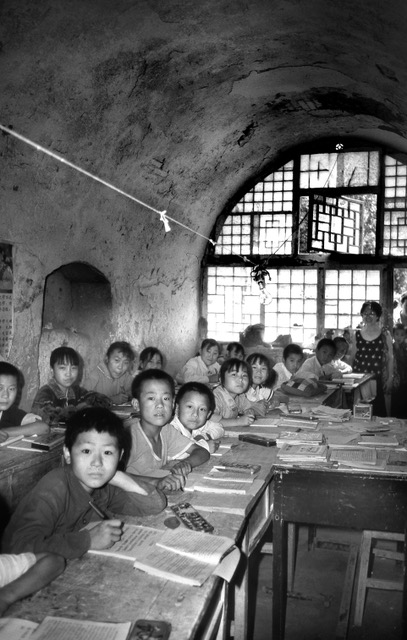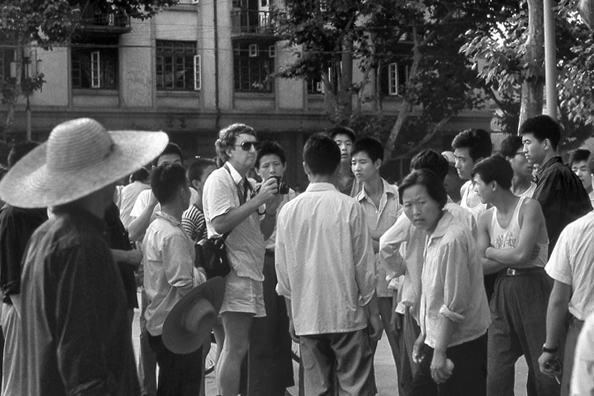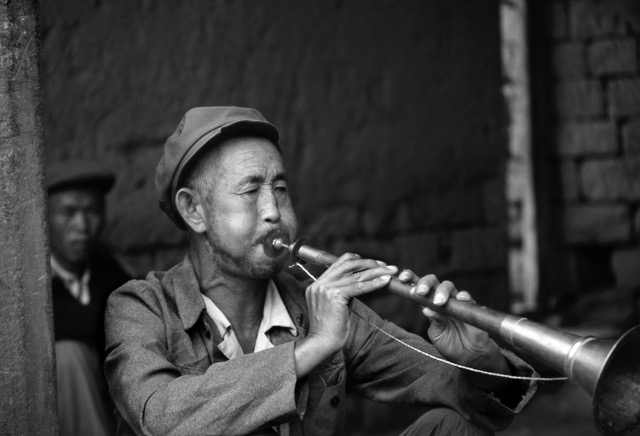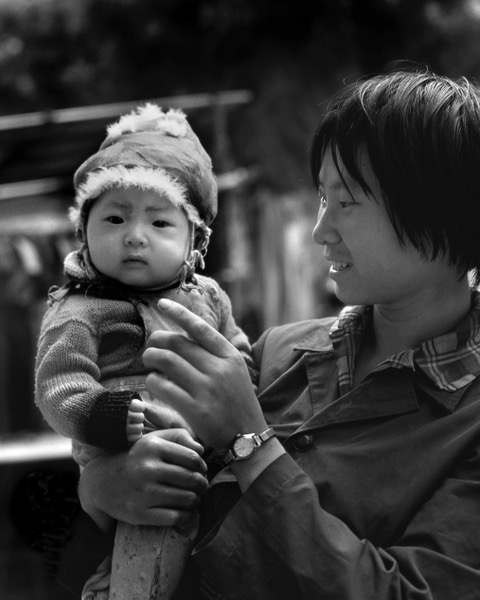Don Gibbs publishes book of photos on important year in China's history
February 21 2021Elisabeth Sherwin -- ensherwin@gmail dot com
Columnist
Dr. Donald Gibbs is Emeritus Professor of Chinese language, literature and film at University of California, Davis. Beginning his teaching career at Harvard University, he founded the Department of Chinese and Japanese at UC Davis. He also founded the UC system-wide summer session which took him to China every year from 1979 to 1990. More recently he was the UC Education Abroad Director resident at Peking University in Beijing. Upon retiring from academics, he developed a second career as a business consultant and participated in the introduction of the MiniMed insulin pump and other medical devices to China."
That's the official biography of my friend, Don Gibbs. I know him a little differently -- as a true friend of China who wants everyone he meets to understand and love that country. We Americans always say in the face of hostile international criticism: "Love us, not the government!" Don says the same thing about China: Love the people, not the government.
I got to know Don and his beloved Chinese wife, Loretta, when I was a reporter at The Davis Enterprise newspaper and Don taught at the university. Each time I heard him give a lecture or talk about his travels, I learned something new about China.
In 1996 I traveled to China to meet Don and Loretta at Peking University when he was UC Education Abroad director. Everyday was an experience. We went to a portion of the Great Wall, ate dumplings in a real Chinese dumpling restaurant, rode Flying Pigeon bikes to the local food market, visited art museums and --- my absolute favorite holding every position on the Top Ten of things to do in Beijing -- visited the Saturday morning ghost market. This market, which opened at dawn when farmers brought their goods to sell, no longer exists in the same form. But from real antiques to fabulous fakes it was a treasure trove. That's another story.
Let me backup for a second. I well remember when Don, Loretta and I were having dinner at the dumpling restaurant in Beijing. While we were there, a young Chinese boy, maybe 7, turned in his chair and began staring at Don, apparently fascinated by the fact that this foreign man was ordering more dumplings in Chinese. Don turned to the boy: "It's very easy to speak Chinese, even children can do it!" Everyone laughed. All of this and more has come rushing back to me over the past few days because Don recently published an extraordinary book of photographs, "The Year That Changed China." Spoiler: That year was 1979. "My aim for this book is to present a snapshot of China in 1979 as a baseline to better understand how far China has come since 1979 and also to be a testament to the magnetism, the resilience and the strength of the Chinese people," wrote Don in the foreword.
I received this "presentation edition" in advance of what Don hopes will be a second, smaller and more affordable book not yet on the market. Don says he got many of the shots in the book by talking to and joking with the otherwise rather shy people, many of whom had never seen a foreigner before, just as I saw him talk to the boy in the restaurant.
But the next edition will not have something priceless that the presentation edition offered: Several loose pages tucked in an envelope at the back of the book contained objections by the Chinese government to Don's captions.
For instance, one of his photos showed a woman with a camera.
The caption read: "During the most extreme period of Mao's radical policies, cameras and photographs were declared bourgeois and therefore decadent. Red Guards -- teenagers, mainly, with empowering arm bands -- raided homes to destroy cameras and burn photos. When interviewing an elderly couple I asked if the Red Guards had given them a hard time. 'Oh no,' they said proudly, 'we burned all our photographs before they got here.' Thus, this earnest young woman in a public park with a camera is a true sign of the times: no more radical policies."
The censors wanted the entire paragraph referencing Mao's policy deleted leaving only the sentence: "This earnest young woman in a public park with a camera is a true sign of the times."
"You see how thin-skinned and insecure the most powerful government on earth is when it comes to the written word," Don said. He had wanted the book to be published in China but because of the censorship it was published elsewhere.
In a way, it is amazing that Don became a Chinese scholar.
"I grew up with no connection to China at all. There was not one single Chinese kid in any class I ever took from first grade through college. We lived in San Francisco so we took visitors to Chinatown, but that was it.
"Then the Korean War broke out. The Army gives tests, I tested with an aptitude for language, took a test, passed, and was offered a choice of several languages. Those strolls through Chinatown had convinced me with the lettering on Chinese storefronts that the written language of China was exotic and would therefore be pretty interesting to learn.
"The Korean War was transformative for many. In my case, I worked with a team of Chinese civilians from Taiwan and lived in tents and bunkers with them in stressful times. That got me bonded to Chinese people."
Don also was horrified by the wastefulness of war and the necessity for communication.
"I saw North Korean towns so leveled that you could lie on your belly and see nothing above a foot high."
After the war, Don finished college and was chosen for a position with the Asia Foundation that sent him to Taiwan, to the very same university where Loretta was teaching, thus making them colleagues. And, in relatively short order, husband and wife. But that, too, is another story. "So I continued studying Chinese, got the PhD so I could make a living at it, tried to instill in my students a love of Chinese culture, a respect for its civilization, an affection for the people. When I took students to China I always made the point that there are two countries: the China of the people and the China of the government.
“Have as much to do with the people as you can, steer clear as much as possible from the other,” I told them. Don was hired at UC Davis in 1976, the year Mao died. Three years later, it was evident the country was headed in a new direction. Don and Loretta took advantage of that change, travelling widely in China every year from 1979 to about 2017. In the early years, a curious crowd would form wherever Don went.
"I always carried a camera, I always interacted with people when I took their photos. (Back in the U.S.) I used the photographs, color slides, to make presentations at every opportunity, sometimes to faculty, more often to students, occasionally, when invited, to the community," he said. In addition to his lectures, Don also brought many Chinese films to the Davis community and showed them at his annual film festival on campus. He and Loretta hosted many students and Chinese visitors at their home on Kent Drive. Why did he do all of this? Because he wanted people to understand China?
“No,” he replied. “I understand Hitler but I don’t love him. I want more than an understanding; I want the audiences to love the people of China.”
He also wants people to know that Mao left China in a terrible mess and the Chinese people suffered dearly. But, being a strong and optimistic people, they built the prosperous China of today. And the Gibbs family is continuing to foster good relations between the two countries. Don's son, Ker, is the president of the Shanghai American Chamber of Commerce.
"In China, that is a very big deal, interfacing between the American government to whom it recommends policies and advises legislators and also the Chinese government to whom it tries to explain as a 'local friend' the American policies. To the local governments in China, AmCham is more approachable than the US government," Don said.
"Ker speaks Chinese. He got two planeloads of personal protective equipment (PPE) to the US from China when we were so desperately low on them."
Don and Loretta, who have been married for 64 years, now live in San Francisco. Don has come full circle, celebrating a people and culture in a world that extends far past Chinatown.
To see photos from Don's collection ahead of the release of the second edition of his book, go to https://dongibbschinaphotos.com/home/.
-- Reach Elisabeth Sherwin at ensherwin@gmail.com



